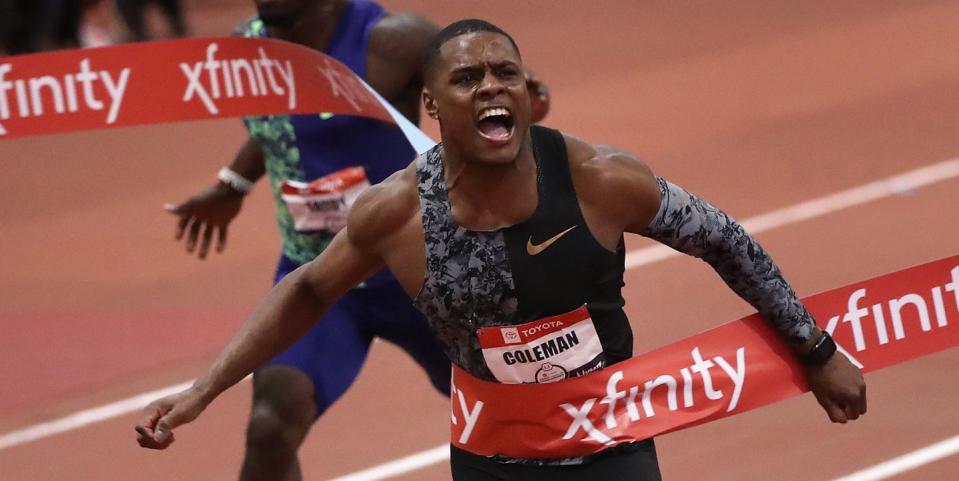Christian Coleman has two-year ban reduced by six months

World 100m champion Christian Coleman has had his two-year ban reduced to eighteen months following an appeal to the Court of Arbitration for Spot (CAS).
The 25-year-old American athlete, who won 100m gold at the World Championships in Doha in 2019, will still miss the Tokyo Olympics this summer as the ban will run until 14 November. However he can defend his world titles next year.
CAS ‘partially upheld’ the Athletics Integrity Unit’s (AIU) ruling, but found Coleman’s ‘degree of negligence to be lower’ than in the original decision, because he did not receive a phone call when an anti-doping officer arrived at his address for one of his missed tests.
According to the International Standard for Testing and Investigations (ISTI), an athlete is required to be available for testing within a 60 minute time slot that they have provided in advance.
Coleman’s appeal argued that as he was shopping near his home at the time of his third test, he could easily have traveled home if he had received a call from the anti-doping officer. While such a phone call isn’t required by the rules, ‘it was nevertheless reasonable for the athlete to expect such a call,’ the ruling from CAS says.
‘In conclusion,’ the ruling says, ‘the CAS Panel determined that an 18-month period of ineligibility was the appropriate sanction in the circumstances.’
Coleman was provisionally suspended in June 2020 after missing a third test in December 2019. Last year’s ruling from the AIU said that although there was no suggestion he had taken a prohibited substance, Coleman’s attitude to his obligations could ‘fairly be described as entirely careless, perhaps even reckless.’
Brett Clothier, head of the Athletics Integrity Unit, said: ‘We welcome the decision in this case. No notice out of competition testing is a fundamental pillar of the World Anti-Doping Code and is only possible with strict enforcement of whereabouts requirements.
‘It is not sufficient for athletes to be near their indicated location and to rely on being called by the doping control officer,’ he said. ‘The whereabouts requirements apply to all elite athletes around the world in equal measure.
Like this article? Sign up to our newsletter to get more articles like this delivered straight to your inbox.
You Might Also Like

 Yahoo Finance
Yahoo Finance 